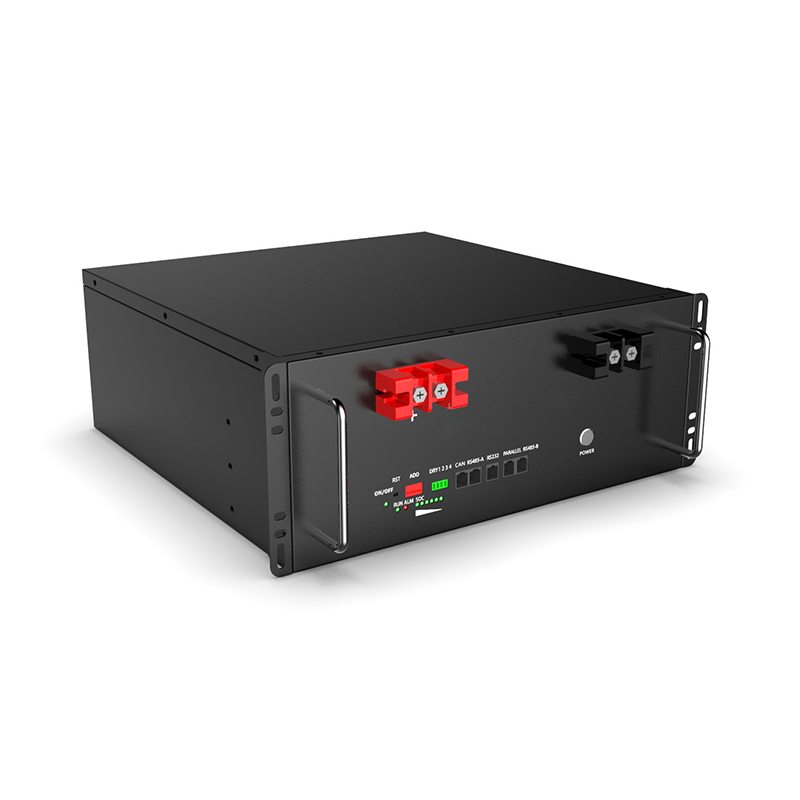Exploring the Advantages of Using 48V Lithium Battery Packs: The Future of Energy Storage
2025-08-26

Exploring the Advantages of Using 48V Lithium Battery Packs
As the world increasingly leans towards renewable energy solutions, the demand for efficient energy storage systems has surged. One of the standout options in this arena is the 48V lithium battery pack. This article will unpack the numerous advantages of these battery systems, highlighting their benefits, applications, and why they are a favorable choice for both consumer and industrial uses.
Table of Contents
- 1. Introduction to 48V Lithium Battery Packs
- 2. What Are 48V Lithium Battery Packs?
- 3. Advantages of 48V Lithium Battery Packs
- 3.1 High Energy Density
- 3.2 Long Lifespan and Reliability
- 3.3 Lightweight and Compact Design
- 3.4 Fast Charging Capabilities
- 3.5 Low Self-Discharge Rate
- 3.6 Environmentally Friendly Option
- 4. Applications of 48V Lithium Battery Packs
- 5. Understanding Battery Management Systems (BMS) in 48V Systems
- 6. Cost Considerations for 48V Lithium Battery Packs
- 7. The Future of 48V Lithium Battery Packs
- 8. FAQs About 48V Lithium Battery Packs
- 9. Conclusion
1. Introduction to 48V Lithium Battery Packs
The evolution of battery technology has given rise to powerful and efficient solutions that cater to various energy storage needs. Among these advancements, the **48V lithium battery pack** stands out due to its impressive performance characteristics and versatility. Today, we will explore what makes these battery packs advantageous and how they can meet the growing demand for reliable energy storage.
2. What Are 48V Lithium Battery Packs?
**48V lithium battery packs** are rechargeable energy storage systems that use lithium-ion technology to provide high-capacity power. These battery packs typically consist of multiple cells connected in series to achieve a nominal voltage of 48 volts. They are commonly used in various applications, including electric vehicles, renewable energy systems, and industrial solutions, thanks to their superior energy density and efficiency.
3. Advantages of 48V Lithium Battery Packs
3.1 High Energy Density
One of the primary advantages of **48V lithium battery packs** is their **high energy density**. Compared to traditional lead-acid batteries, lithium batteries can store more energy in a smaller physical size, allowing for significant weight savings in applications such as electric vehicles (EVs) and portable devices. This efficiency translates into longer run times and better overall performance.
3.2 Long Lifespan and Reliability
Another key benefit is the **long lifespan** of 48V lithium battery packs, which can last anywhere from 8 to 15 years, depending on usage and charging patterns. Unlike lead-acid batteries, which may only last a few years, lithium batteries are durable and can handle hundreds of charge cycles without significant degradation. This reliability makes them a preferred choice for critical applications where downtime is not an option.
3.3 Lightweight and Compact Design
The **lightweight and compact design** of 48V lithium battery packs makes them ideal for various applications, especially in mobile and space-constrained environments. Their smaller footprint allows for easier integration into vehicles and other systems, providing designers and engineers with the flexibility to create innovative solutions without compromising on performance.
3.4 Fast Charging Capabilities
48V lithium battery packs also offer **fast charging capabilities**, enabling quicker turnaround times for devices and systems reliant on battery power. With the right charging infrastructure, these batteries can be charged to 80% in significantly less time than traditional batteries, making them a practical solution for industries that require minimal downtime.
3.5 Low Self-Discharge Rate
With a **low self-discharge rate**, 48V lithium battery packs can retain their charge for extended periods when not in use. This feature is particularly beneficial for applications where batteries may sit idle for months, such as in backup power systems. Users can expect a reliable power source without the need for frequent recharging.
3.6 Environmentally Friendly Option
As society increasingly prioritizes sustainability, **48V lithium battery packs** present an **environmentally friendly option** compared to traditional lead-acid batteries. Lithium batteries are recyclable and contain fewer toxic materials, making them less harmful to the environment. This advantage aligns with the global push for greener technologies and energy solutions.
4. Applications of 48V Lithium Battery Packs
4.1 Renewable Energy Systems
One of the most significant applications for **48V lithium battery packs** is in **renewable energy systems**, such as solar and wind power. These battery packs store excess energy generated during peak production times, allowing users to utilize this energy later when demand is high or production is low. This capability enhances energy independence and reduces reliance on the grid.
4.2 Electric Vehicles
In the automotive sector, **48V lithium battery packs** are increasingly used in **electric vehicles (EVs)** and hybrids. They provide the necessary power for electric motors while maintaining an efficient and lightweight profile. As manufacturers strive to improve vehicle range and performance, the role of lithium battery packs becomes increasingly vital.
4.3 Industrial Uses
Industries such as material handling, telecommunications, and backup power systems are also adopting **48V lithium battery packs** for their reliability and efficiency. These batteries support critical operations, provide backup power during outages, and drive various industrial equipment, enhancing productivity and operational resilience.
5. Understanding Battery Management Systems (BMS) in 48V Systems
To maximize the efficiency and lifespan of **48V lithium battery packs**, it is essential to understand the role of the **Battery Management System (BMS)**. The BMS monitors the battery's state, manages charging and discharging, and ensures optimal performance by preventing issues such as overcharging, overheating, and cell imbalance. Implementing a robust BMS is crucial for safety, longevity, and reliability in any application utilizing 48V lithium batteries.
6. Cost Considerations for 48V Lithium Battery Packs
While the initial investment in **48V lithium battery packs** can be higher than traditional alternatives, their long-term benefits, such as lower maintenance costs and extended lifespan, often lead to significant savings over time. It is essential for businesses and consumers to conduct a thorough cost-benefit analysis to understand the return on investment associated with switching to lithium technology.
7. The Future of 48V Lithium Battery Packs
The future of **48V lithium battery packs** appears promising as advancements in battery technology continue to emerge. Innovations such as improved energy density, faster charging capabilities, and enhanced safety features will likely drive further adoption across various sectors. As the world's energy landscape evolves, these battery packs will play a crucial role in achieving sustainable energy solutions.
8. FAQs About 48V Lithium Battery Packs
1. What is the lifespan of a 48V lithium battery pack?
The lifespan of a **48V lithium battery pack** typically ranges from 8 to 15 years, depending on usage and maintenance.
2. Can 48V lithium battery packs be used for renewable energy storage?
Yes, **48V lithium battery packs** are ideal for storing excess energy generated from renewable sources such as solar and wind.
3. Are 48V lithium battery packs safe?
When equipped with a proper **Battery Management System (BMS)**, **48V lithium battery packs** are considered safe and reliable.
4. How do 48V lithium battery packs compare to lead-acid batteries?
**48V lithium battery packs** offer higher energy density, longer lifespan, and faster charging capabilities compared to lead-acid batteries.
5. What are the applications of 48V lithium battery packs?
They are used in electric vehicles, renewable energy systems, industrial applications, and more.
9. Conclusion
In conclusion, **48V lithium battery packs** represent a significant advancement in energy storage technology. Their high energy density, long lifespan, and versatility make them an attractive choice for various applications, from renewable energy systems to electric vehicles. As we move towards a more sustainable energy future, the advantages of these battery packs will continue to shine, helping drive innovation and efficiency in energy storage solutions. Embracing this technology today can pave the way for a brighter and more sustainable tomorrow.
Key words:
Related News


